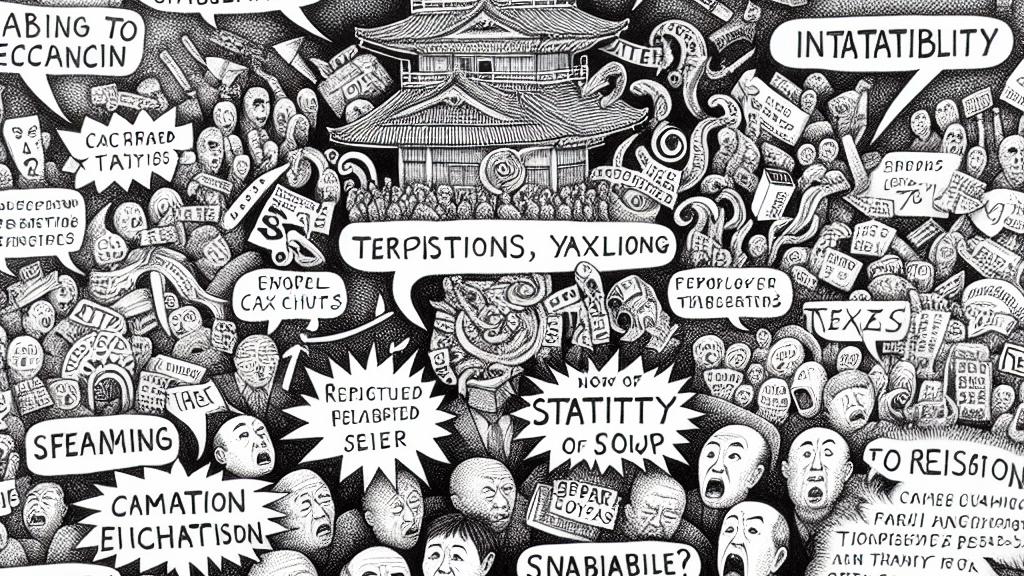The Unusual Resistance to Tax Cuts in Japan
Overview
- Japan displays remarkable resistance to tax cuts, stirring debates about their potential to kickstart the economy.
- Tax policy discussions often mirror the delicate art of cooking—dynamic adjustments based on specific circumstances are paramount.
- Such conversations unearth not only economic challenges but also entrenched issues within Japan's political landscape.

Decoding the Cultural Context of Taxation in Japan
In Japan, the notable resistance to tax cuts raises eyebrows and sparks curiosity, especially among those familiar with global economic dynamics. While tax cuts are widely acknowledged as game-changers that can drive economic momentum, the reactions from Japan's political actors tell a different story. For instance, a recent anonymous diary entry illustrates just how triggering any discussion of tax reduction can be. As soon as the idea emerges, a cacophony of voices from politicians, media, and bureaucrats respond in concert, fearing the fiscal repercussions that may follow. This hesitation isn't something new; it's a reflection of a deeply rooted belief that prioritizes stability over risk-taking, consequently stifling the potential for economic rejuvenation.
The Culinary Analogy: Rethinking Tax Policy Adjustments
Picture tax policy as the culinary arts—where every choice, like adjusting heat, can profoundly shape the outcome. This analogy captures the essence of why Japan must consider adaptive taxation strategies! For example, imagine if the nation decided to temporarily reduce taxes; this could spark an immediate uptick in consumer spending, akin to introducing a new, tantalizing dish that excites diners. Look at the massive surge in sales that occurs when restaurants hit upon a culinary trend; that's the kind of enthusiasm Japan could harness. Yet, policymakers often shy away from experimentation, preferring to play it safe with established methods, thereby risking an underwhelming economic performance that lacks vibrancy.
The Broader Implications of Tax Policy Reform
Discussions surrounding tax policy in Japan illuminate a complex interplay between economic imperatives and social equity concerns. Currently, the government is contemplating revisions to the '103-man yen wall' to bolster workforce participation. However, these changes must be navigated with caution; missteps could inadvertently deepen existing inequalities. High-income individuals typically benefit the most from tax cuts, leading to perceptions of a system that favors the wealthy over the working class. Thus, it is essential for Japan to innovate its taxation strategies not merely to ignite economic growth but also to ensure a fair distribution of benefits. Public conversations now emphasize the pressing need for a forward-thinking fiscal framework that aligns with the diverse needs of its populace, making the call for an evolved economic approach more urgent than ever.

Loading...